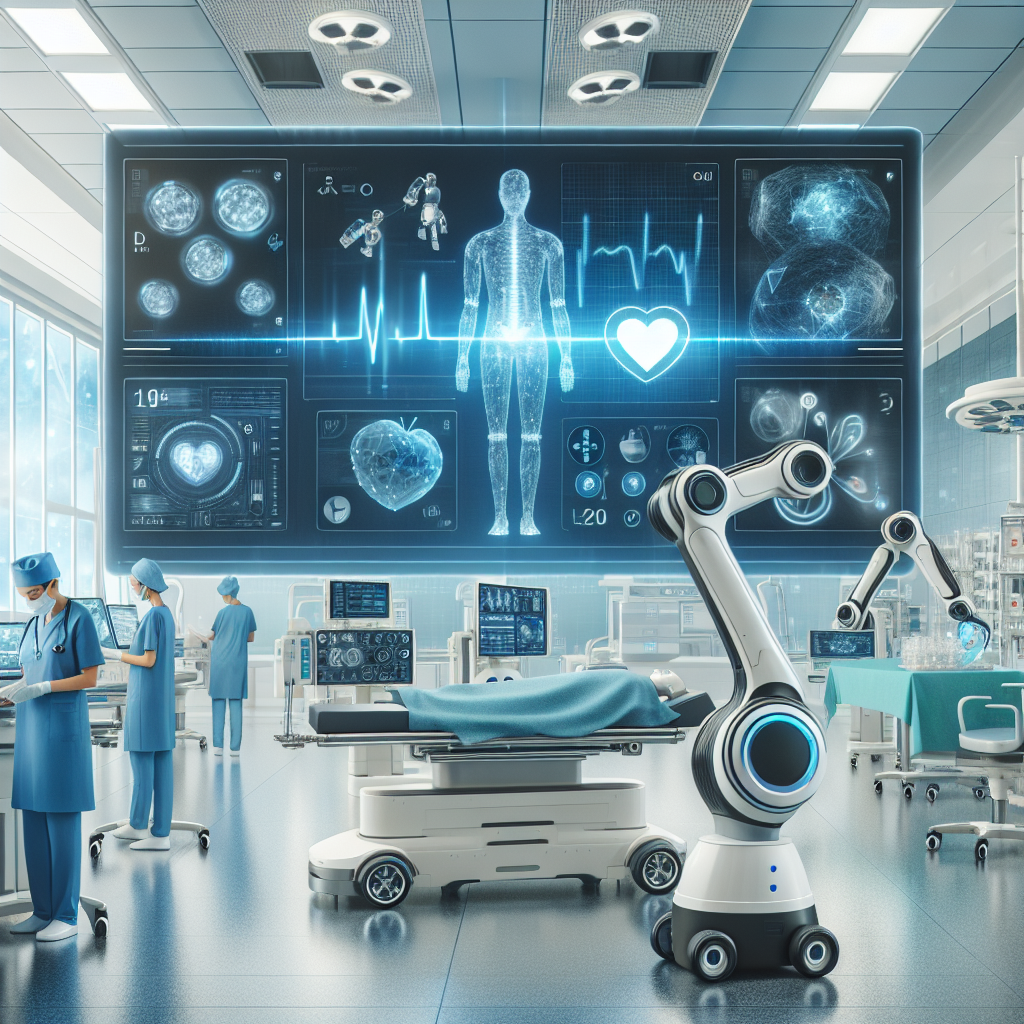The Benefits of AI Automation in Healthcare
In recent years, artificial intelligence (AI) has been revolutionizing the healthcare industry by automating processes and improving patient care. From streamlining administrative tasks to diagnosing diseases more accurately, AI automation is transforming the way healthcare is delivered. In this article, we will explore the various benefits of AI automation in healthcare and how it is reshaping the industry.
1. Improved Efficiency
One of the key benefits of AI automation in healthcare is improved efficiency. By automating administrative tasks such as scheduling appointments, processing insurance claims, and managing patient records, healthcare providers can free up valuable time to focus on patient care. AI-powered systems can also analyze large amounts of data quickly and accurately, helping healthcare professionals make better decisions and improve patient outcomes.
2. Enhanced Diagnostics
AI automation has the potential to revolutionize the way diseases are diagnosed. By analyzing medical images, lab results, and patient data, AI algorithms can help healthcare providers identify diseases more accurately and at an earlier stage. For example, AI-powered systems can detect abnormalities in medical images that may be missed by human radiologists, leading to faster and more accurate diagnoses.
3. Personalized Treatment Plans
AI automation can also help healthcare providers develop personalized treatment plans for patients. By analyzing patient data, AI algorithms can identify trends and patterns that may indicate the most effective course of treatment for a particular individual. This personalized approach to healthcare can lead to better outcomes and improved patient satisfaction.
4. Remote Monitoring
AI automation is enabling remote monitoring of patients, allowing healthcare providers to track vital signs and other health metrics in real-time. This can help identify potential health issues before they become serious and reduce the need for in-person visits to healthcare facilities. Remote monitoring also allows patients to receive care in the comfort of their own homes, improving convenience and accessibility.
5. Predictive Analytics
AI automation can also be used to predict future health outcomes based on historical data. By analyzing patient records and other data sources, AI algorithms can identify trends and patterns that may indicate an increased risk of certain diseases or health conditions. This predictive analytics can help healthcare providers intervene early and prevent the onset of serious health issues.
FAQs
Q: Is AI automation in healthcare safe?
A: AI automation in healthcare is generally considered safe, as long as proper safeguards and regulations are in place. Healthcare providers should ensure that AI algorithms are accurate and reliable before implementing them in clinical settings.
Q: Will AI automation replace human healthcare providers?
A: While AI automation can improve efficiency and accuracy in healthcare, it is unlikely to replace human healthcare providers entirely. AI algorithms can assist healthcare professionals in making better decisions and improving patient care, but human expertise and compassion are still essential in the delivery of healthcare.
Q: How can healthcare providers implement AI automation?
A: Healthcare providers can implement AI automation by partnering with technology companies that specialize in healthcare AI solutions. They can also train their staff to use AI-powered systems effectively and integrate AI algorithms into existing healthcare workflows.
Q: What are the potential challenges of AI automation in healthcare?
A: Some potential challenges of AI automation in healthcare include data privacy concerns, regulatory compliance issues, and the need for ongoing training and education for healthcare professionals. It is important for healthcare providers to address these challenges proactively to ensure the successful implementation of AI automation.
In conclusion, AI automation is transforming the healthcare industry by improving efficiency, enhancing diagnostics, personalizing treatment plans, enabling remote monitoring, and predicting future health outcomes. While there are challenges to overcome, the benefits of AI automation in healthcare are clear, and the potential to improve patient care and outcomes is significant. By embracing AI technology, healthcare providers can revolutionize the way healthcare is delivered and make a positive impact on the lives of patients.

